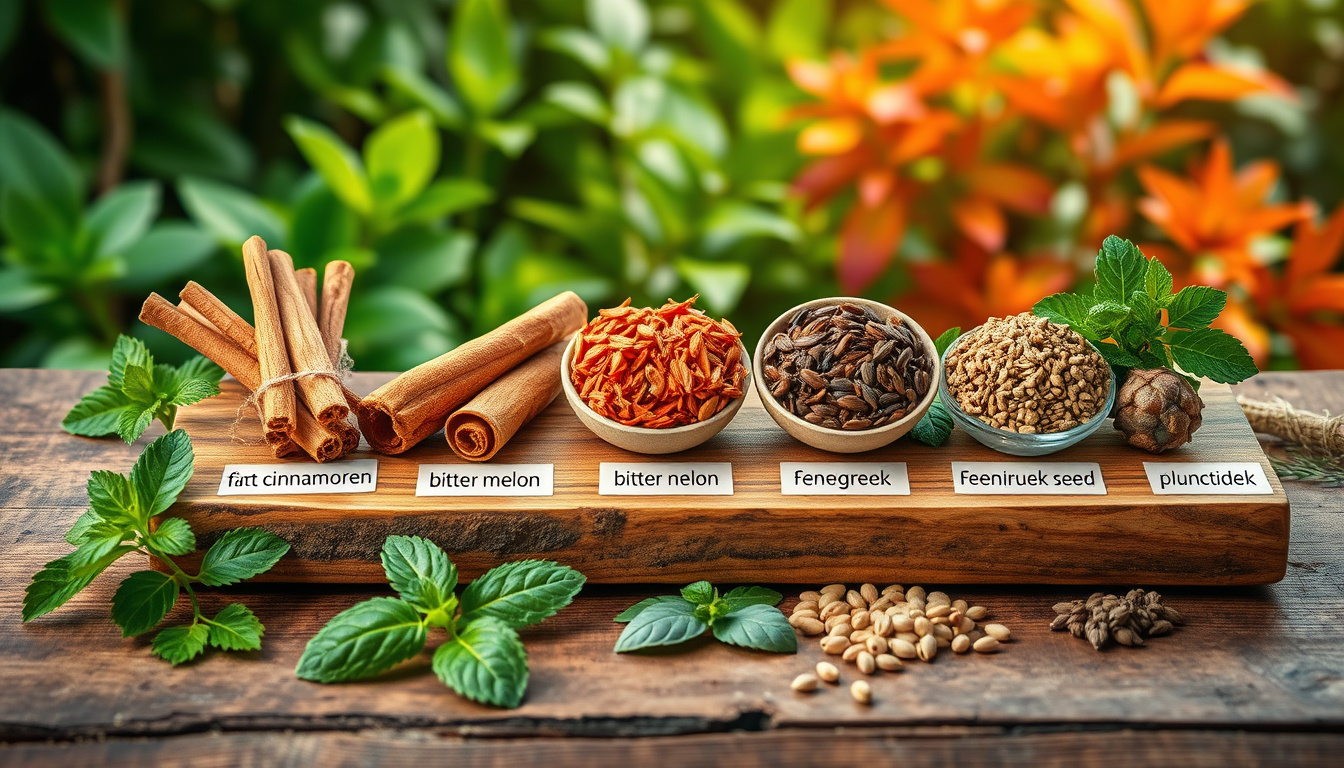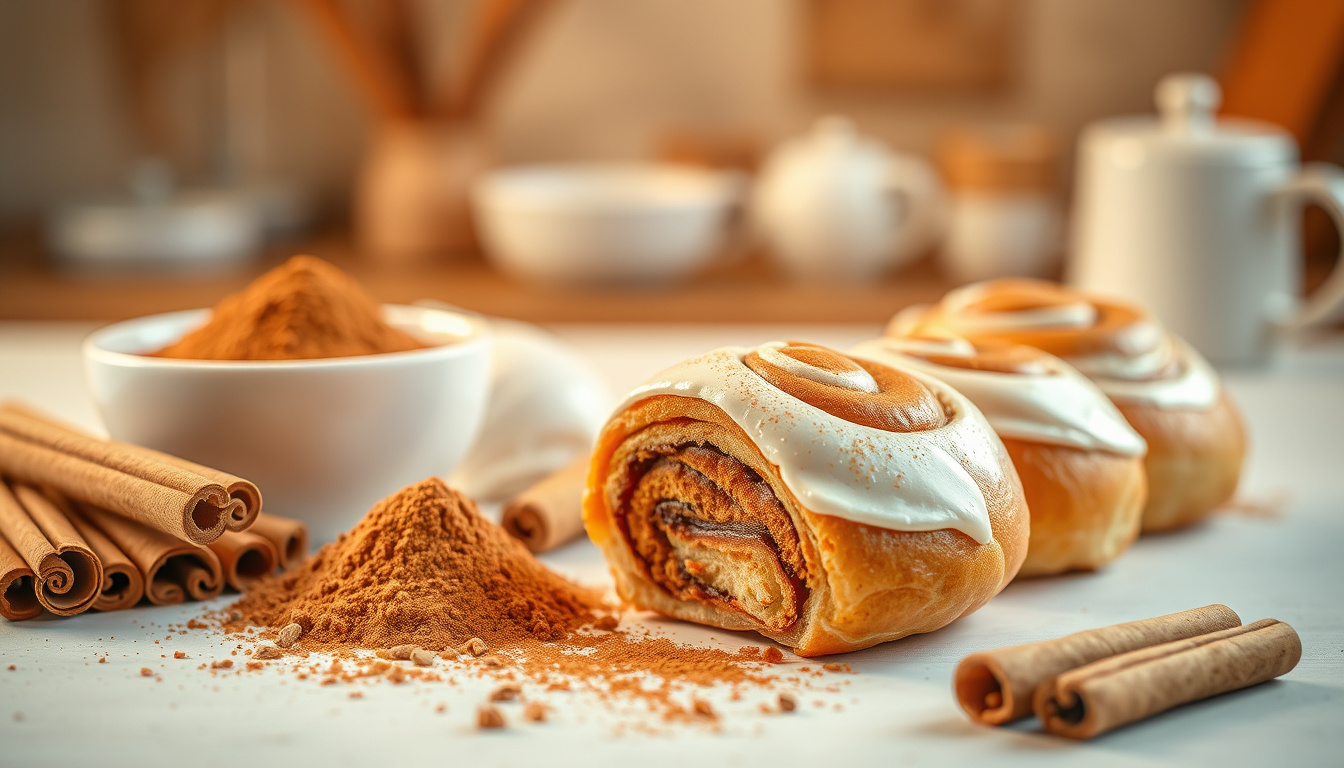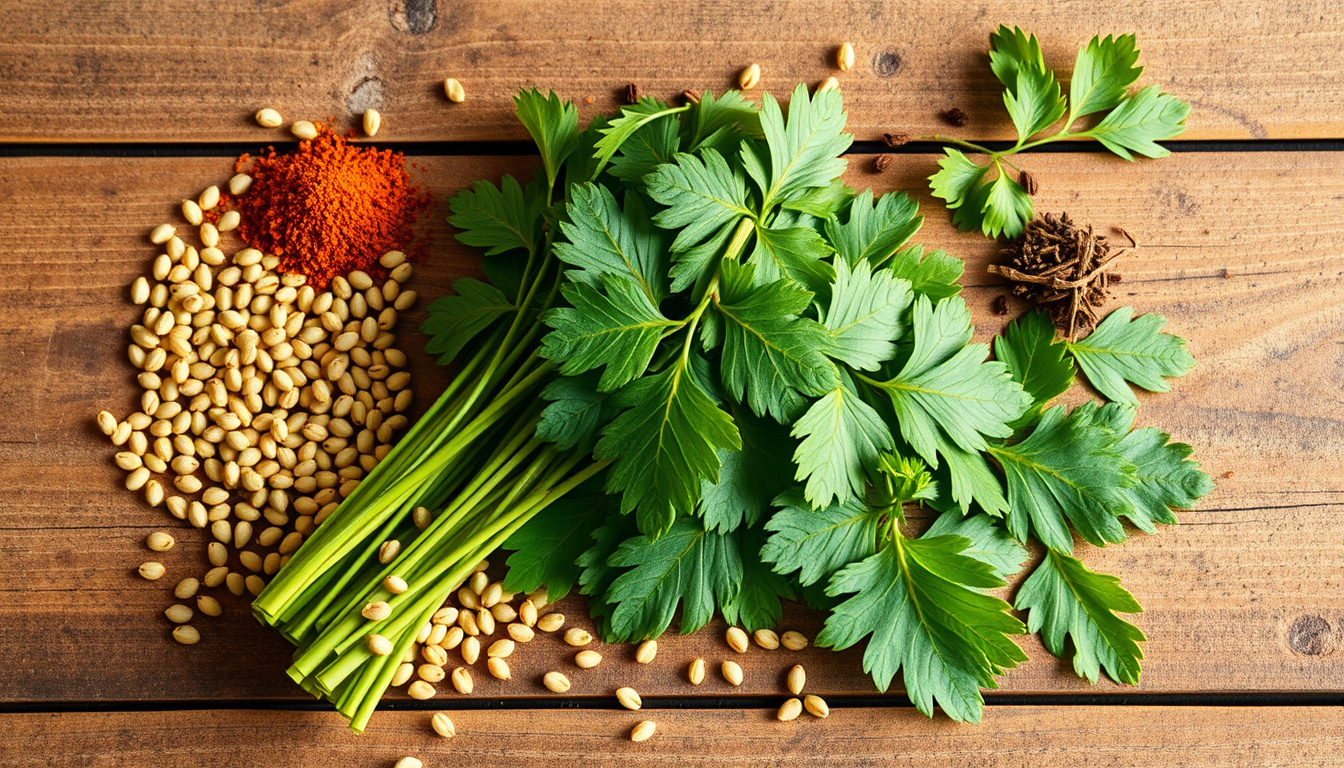Top 10 Powerful Herbs to Naturally Lower Blood Sugar Levels
 Jill Smith
Jill SmithIn today's world, understanding how to maintain healthy blood sugar levels is essential for many individuals, especially those managing diabetes or at risk of developing this condition.
Blood sugar regulation plays a crucial role in overall health, affecting energy levels, mood, and metabolic processes.
While many tend to rely on medications and synthetic solutions, there is a growing interest in using natural alternatives — particularly herbs — to help manage blood glucose levels.
This article explores powerful herbs to lower blood sugar and how they can complement a balanced lifestyle.
Discover how natural options like cinnamon, bitter melon, and ginseng can make a difference in your health journey.

Key Takeaways
- Cinnamon can enhance insulin sensitivity and help stabilize blood sugar levels.
- Bitter melon acts as a natural insulin mimic, supporting lower blood sugar.
- Fenugreek's high fiber content contributes to improved glucose metabolism.
- Berberine is a powerful alkaloid known for its effectiveness in blood sugar management.
- Incorporating these herbs into a balanced diet can promote overall health and blood sugar control.
Introduction to Blood Sugar Regulation
Maintaining healthy blood sugar levels is essential for overall well-being, particularly for those managing diabetes or seeking to prevent its onset.
One effective approach that has garnered attention is the use of herbs to lower blood sugar.
These natural remedies have been utilized in traditional medicine for centuries and are now being explored in modern research for their potential benefits.
Incorporating specific herbs into your diet could not only stabilize glucose levels but also enhance your overall health by providing additional nutrients and antioxidants.
In this article, we will delve into some of the most promising herbs that may aid in blood sugar regulation and discuss how they work in the body, ensuring you have all the information you need to enhance your health naturally.
Understanding the Role of Herbs in Blood Sugar Control
Herbs to lower blood sugar have been gaining recognition in the natural health community as effective aids in managing glucose levels.
Understanding the role of herbs in blood sugar control is crucial for individuals seeking alternative or complementary therapies alongside conventional medicine.
Certain herbs, such as cinnamon, fenugreek, and bitter melon, are known for their potential to improve insulin sensitivity and lower blood glucose levels.
For instance, cinnamon contains compounds that enhance glucose metabolism, making it a popular choice for those looking to manage diabetes naturally.
Fenugreek seeds, rich in soluble fiber, can slow down the absorption of carbohydrates, which further helps in controlling blood sugar spikes after meals.
Additionally, bitter melon acts as a natural insulin mimetic, promoting better glucose utilization in the body.
Incorporating these herbs into your diet could be a beneficial strategy; however, consulting with a healthcare professional before starting any new herb regimen is recommended to ensure safety and effectiveness.
'Let food be thy medicine and medicine be thy food.' - Hippocrates

1. Cinnamon: The Sweet Solution
When it comes to managing blood sugar levels naturally, cinnamon is one of the most potent herbs to lower blood sugar.
This aromatic spice, commonly sprinkled on everything from baked goods to morning coffee, has been shown in numerous studies to enhance insulin sensitivity and lower fasting blood sugar levels.
Rich in antioxidants, cinnamon helps to combat oxidative stress, which is often linked to diabetes complications.
Incorporating cinnamon into your diet can be as simple as adding a dash to your smoothies or oatmeal in the morning.
Not only does it add a delightful flavor, but it also functions as a sweet solution for those aiming to regulate their glucose levels without relying solely on medications.
2. Bitter Melon: The Natural Insulin Mimic
Bitter melon is a notable contender among herbs to lower blood sugar, prized for its unique ability to mimic insulin and enhance glucose metabolism.
This green vegetable, often used in traditional medicine, contains compounds like charantin and polypeptide-p, which have been shown to help regulate blood sugar levels.
Studies suggest that including bitter melon in your diet may improve insulin sensitivity and increase glucose uptake by cells, making it a valuable addition for individuals seeking natural ways to manage their diabetes.
With its bitter taste and versatile culinary uses, bitter melon can be incorporated into stir-fries, juices, or even taken as a supplement, providing a holistic approach to blood sugar control.

3. Fenugreek: The Fiber-Packed Herb
Fenugreek, known scientifically as Trigonella foenum-graecum, is more than just a culinary herb; it's a powerful natural remedy among the herbs to lower blood sugar.
Rich in dietary fiber, particularly in the form of galactomannan, fenugreek helps slow down the absorption of sugar in the bloodstream after meals.
This process not only supports overall blood sugar management but also promotes better digestive health.
Research suggests that the seeds contain compounds that may improve insulin sensitivity and reduce blood glucose levels.
Additionally, the anti-inflammatory properties of fenugreek contribute to its effectiveness in supporting metabolic health.
Incorporating fenugreek in your diet can be as simple as adding its seeds to curries, smoothies, or herbal teas.
By doing so, you can enjoy its unique flavor while also harnessing its benefits as one of the most effective herbs to lower blood sugar.
4. Berberine: The Potent Alkaloid
When it comes to effective herbs to lower blood sugar, berberine stands out as a potent alkaloid that has gained attention in recent years for its impressive health benefits.
Found naturally in a variety of plants, including the barberry, goldenseal, and Indian tree turmeric, berberine has been extensively studied for its ability to help manage blood sugar levels.
Research indicates that berberine can enhance insulin sensitivity, promote glucose metabolism, and even aid in weight management—all vital elements for those struggling with insulin resistance or type 2 diabetes.
Its mechanism of action involves activating an enzyme called AMP-activated protein kinase (AMPK), which plays a significant role in regulating carbohydrate and lipid metabolism.
Incorporating berberine into your daily supplement routine can be a game-changer in achieving better blood sugar control, making it one of the most promising herbs to lower blood sugar available today.
Frequently Asked Questions
What are some natural ways to lower blood sugar levels?
In addition to herbs, maintaining a balanced diet, exercising regularly, and managing stress can help regulate blood sugar levels naturally.
Can these herbs interact with medications for diabetes?
Yes, some herbs can interact with blood sugar medications, so it's important to consult a healthcare professional before adding them to your routine.
How should I incorporate these herbs into my diet?
You can incorporate these herbs into your diet through cooking, teas, supplements, or as part of smoothies, depending on the herb.
Are there any side effects associated with these herbs?
While most herbs are safe, some may cause side effects or allergic reactions in some individuals.
It's advisable to start with small doses and monitor your body's response.
How long does it take to see the effects of these herbs on blood sugar levels?
The timeframe can vary based on the herb and individual metabolism, but some may notice improvements within a few weeks with consistent use.
Turn Back the Clock: Unlock the Secrets to Reverse Diabetes in 30 Days. Don't Wait! Download Now
Subscribe to my newsletter
Read articles from Jill Smith directly inside your inbox. Subscribe to the newsletter, and don't miss out.
Written by
